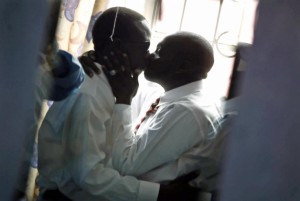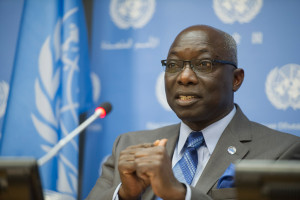By Sarah Lafen
Impunity Watch Desk Reporter, Europe
ROME, Italy — The Italian Police have issued detention orders for 38 people suspected of smuggling migrants into Italy. On Monday morning, 23 of the 38 people were taken into custody. Those arrested were were a mix of Eritreans, Ethiopians, and Italians. The remaining suspects who have not yet been caught are all South African nationals. These arrests occurred in ten different cities across Italy including Rome, Palermo, and Milan.

Investigations last May led to the discovery of the large migrant-smuggling network between Italy and Africa. According to the investigation, migrants paid smugglers through a system called ‘hawala’ which is a cash transfer system based entirely on trust, and leaves no paper trail.
Investigators were able to gain more insight into the network through the testimony of Nuredin Wehabrebi Atta, an Eritrean man who was arrested in 2014 for his connection to the smuggling network. Atta’s testimony led to the police raid of a perfume store in central Rome. Migrants would bring cash to the store and give the cash to two intermediaries who were then caught on film transferring the money to smugglers in several African nations via the hawala system. At the perfume store, Italian police seized nearly €526,000 ($600,000) and $25,000 in cash, as well as an address book with the names and phone numbers of members involved in the migrant-smuggling network. According to Atta, migrants who were unable to pay in cash for their voyages were involved in the removal and selling of their organs.
Smugglers utilize different schemes to illegally transport the migrants into Italy. Palermo Prosecutor Francesco Lo Voi singled out the two main hubs of the network – Sicily and Rome. The smugglers often organize fake events in Italy, such as weddings or family reunions, to allow the migrants to stay in the country legally. Lo Voi also revealed another network scheme which involved legal migrants within Italy falsely stating that they had relatives who wanted to reach them in Italy. This scheme operates under the Italian law which gives immediate family members who live outside of Italy permission to enter the country. Smugglers will also scoop up migrants who were brought to Sicily after being rescued from a ship, so they can bring them to alleged family members in northern European countries.
For more information, please see:
ABC – Italy Detains 38 in Crackdown on Migrant Trafficking Ring — 4 July 2016
Daily Mail — Italian Police Smash Suspected People-Smuggling Ring, Arrest Dozens — 4 July 2016



